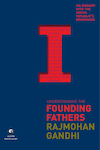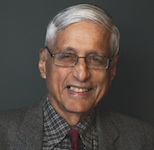Understanding the Founding Fathers: An Enquiry into the Indian Republic’s Beginnings
 Nearly seventy years ago, the founding fathers of the Indian republic—Mahatma Gandhi, Jawaharlal Nehru, B. R. Ambedkar, Subhas Chandra Bose and Vallabhbhai Patel—steered the new nation in a direction that ensured it wasn’t destroyed by sectarianism, casteism and authoritarianism. Because their wisdom found widespread acceptance, every time it seemed that the country would succumb to religious hatred, fissiparous tendencies or caste violence, disaster was averted as its leaders and its people stayed more or less true to the values on which the republic was founded. In recent times, however, attempts have been made to discredit these great Indians and devalue their contribution to the modern Indian state.
Nearly seventy years ago, the founding fathers of the Indian republic—Mahatma Gandhi, Jawaharlal Nehru, B. R. Ambedkar, Subhas Chandra Bose and Vallabhbhai Patel—steered the new nation in a direction that ensured it wasn’t destroyed by sectarianism, casteism and authoritarianism. Because their wisdom found widespread acceptance, every time it seemed that the country would succumb to religious hatred, fissiparous tendencies or caste violence, disaster was averted as its leaders and its people stayed more or less true to the values on which the republic was founded. In recent times, however, attempts have been made to discredit these great Indians and devalue their contribution to the modern Indian state.
In this thought-provoking book, award-winning biographer and historian Rajmohan Gandhi sets the record straight on the founding fathers as well as their great opponent, Muhammad Ali Jinnah. Along the way, he answers questions of perennial interest—Who was really responsible for Partition? Were Gandhi and Ambedkar enemies? Did the Mahatma weaken the country’s Hindus? Was he anti-Muslim? Should India have been a Hindu Rashtra? Could the Kashmir issue have been dealt with differently? Would Bose and Patel have led the independent nation better than Gandhi and Nehru? For more info read here
Reviews of this book
Rajmohan Gandhi's new book, 'Understanding the Founding Fathers: An Enquiry into the Indian Republic’s Beginnings', is, writes the Times of India, "a thought-provoking work that the author, a grandson of the Mahatma, has penned and despite his relationship, he is quite balanced and freely acknowledges his grandfather's shortcomings and mistakes. And there is something new that most of us will find, though it may not be very salutary, eg. What ex-INA men ended up doing.
